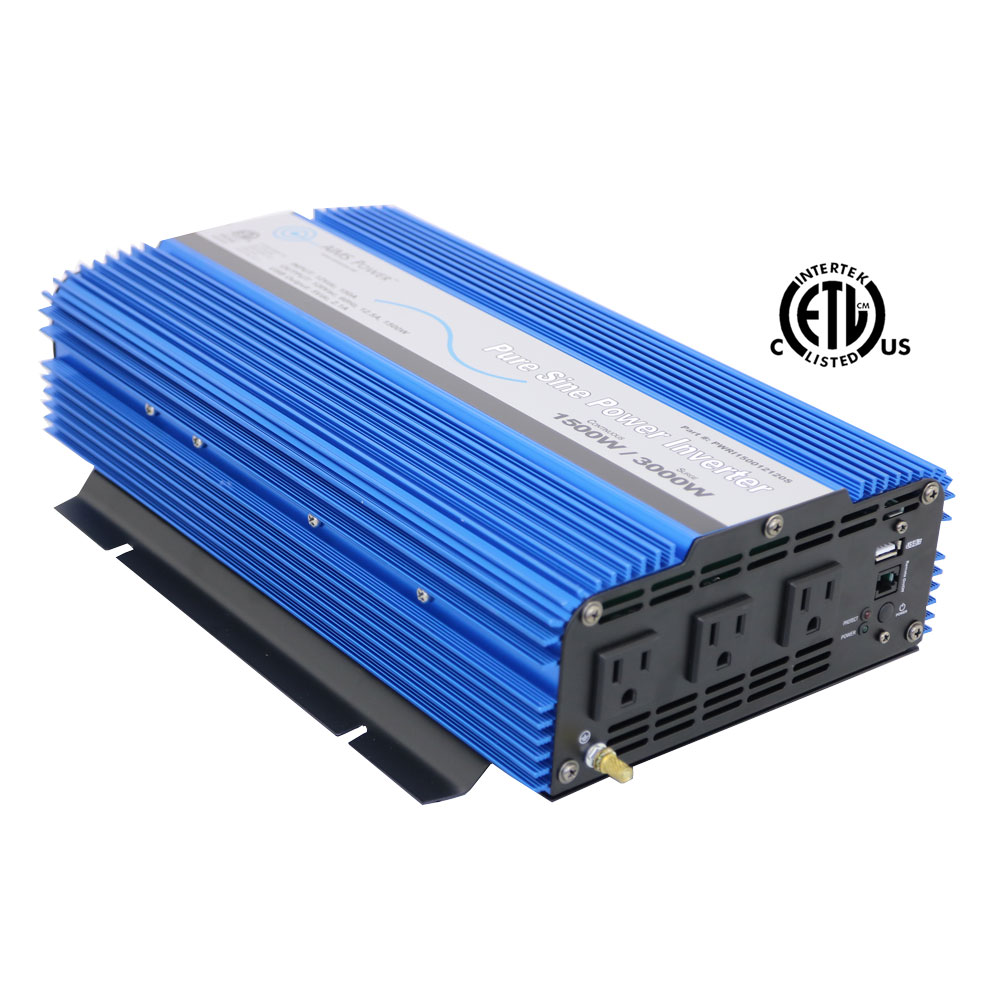Since I don't know anything about inverters except that I need one... I have to ask Is there really much of a difference between these and other budget inverters. Quality/longevity, standby power consumsion, efficiently?

 www.giandel.com
www.giandel.com

 gowisepower.com
gowisepower.com

 www.aimscorp.net
www.aimscorp.net

【FOR USA/CAN 】1500W GIANDEL Power Inverter Pure Sine Wave DC 12V to AC 110V 120V with Dual AC Outlets & LED Dsiplay Remote Controller 2.4A USB Port for RVs Trucks Boats
About this item 【1500W PURE SINE WAVE INVERTER】Provides 1500 Watt continuous power, converts DC 12 Volt to AC 120 Volt ,coming with 2 AC outlets and 1x2.4A USB ports.Product liability insurance is covered by AIG company. 【WIDELY APPLICATION】Need a 12V battery system 200AH or up to connect with...
 www.giandel.com
www.giandel.com

GoWISE Power 1500W/3000W Peak Pure Sine Wave Power Inverter
Power Inverters are an advanced tool of power conversion. It can supply you with AC power converted from a DC power source. It can used in cars, vessel, during camping and in power failure emergencies. This inverter is an excellent tool to use during power failure emergencies and guarantees...
 gowisepower.com
gowisepower.com

1500 Watt Pure Sine Inverter 12Vdc ETL Listed to UL 458
1500 watt pure sine inverter
 www.aimscorp.net
www.aimscorp.net


